Opinion
The Chinese are the UK car industry's best hope for revival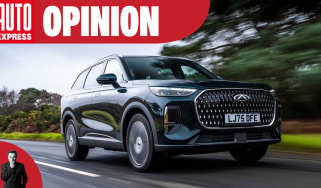

The Chinese are the UK car industry's best hope for revival
Mike Rutherford thinks Chery's deal with JLR to build cars in the UK is a shot in the arm for the industry
These tricks make leasing a car even more affordable

These tricks make leasing a car even more affordable
Ignore cheap monthly payments when car leasing, and focus on a small initial payment. It’ll save you money.
The world’s most important modern car is a Toyota Prius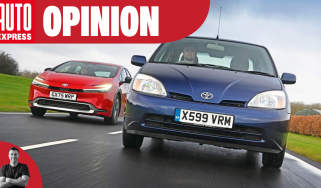

The world’s most important modern car is a Toyota Prius
Steve Walker explains why the Toyota Prius is the most influential car of the last 30 years
Driving a convertible car is one of the joys of life, even in the UK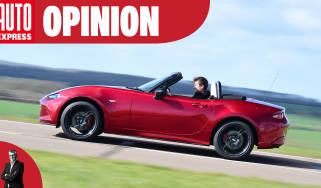

Driving a convertible car is one of the joys of life, even in the UK
Editor Paul Barker laments the decline of the affordable convertible car
Petrol stations aren’t like online shops, so Fuel Finder probably won’t help motorists much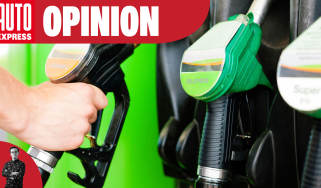

Petrol stations aren’t like online shops, so Fuel Finder probably won’t help motorists much
Consumer reporter Tom Jervis is unconvinced by the Government’s Fuel Finder scheme as convenience will always trump marginal savings when buying petro…
What it takes to set a Nurburgring lap record, from the man who did it in a VW Golf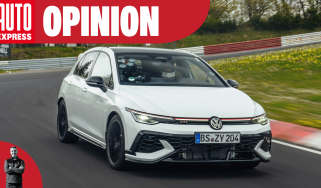

What it takes to set a Nurburgring lap record, from the man who did it in a VW Golf
VW’s mission was to make the Golf GTI Edition 50 its fastest car ever around the Nordschleife – no matter what it took
Powered car boot lids are a rare oasis of calm in the modern world… or a complete waste of time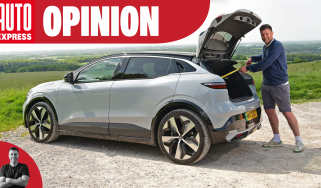

Powered car boot lids are a rare oasis of calm in the modern world… or a complete waste of time
Steve Walker is not a fan of car boots that open and close themselves
Honda HRC could bring Type R joy to the masses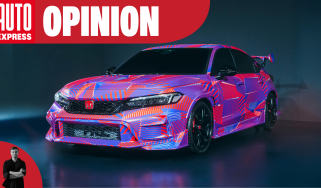

Honda HRC could bring Type R joy to the masses
Alastair Crooks argues that Honda’s new performance sub-brand could rival the biggest names
Stop waiting and buy that dream performance car now, it might just save you money!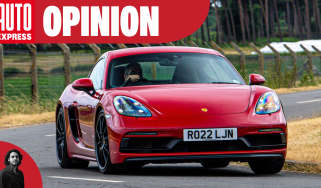

Stop waiting and buy that dream performance car now, it might just save you money!
Auto Express’s news editor reckons now is a great time to buy a depreciation-busting, second-hand performance car
Donald Trump has done a lot for the car industry, but the UK isn’t cashing in

Donald Trump has done a lot for the car industry, but the UK isn’t cashing in
Mike Rutherford argues that, like him or loathe him, Donald Trump has done a lot for the US car industry
I grew up with graduated driving licences in Australia, they’re a great idea for the UK

I grew up with graduated driving licences in Australia, they’re a great idea for the UK
News editor Jordan Katsianis believes graduated driving licences would help keep young drivers safe on the roads
Modern cars might be heavy, but they’re also safe, luxurious and efficient. We’ve never had it so good.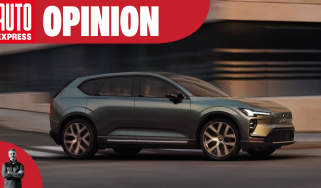

Modern cars might be heavy, but they’re also safe, luxurious and efficient. We’ve never had it so good.
Deputy editor Richard Ingram thinks the automotive industry remains a varied and exciting place
Stop teasing us Mercedes-AMG, just give us a CLE 63 with a big V8 already!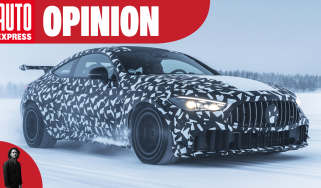

Stop teasing us Mercedes-AMG, just give us a CLE 63 with a big V8 already!
Jordan Katsianis believes that the teaser of AMG’s new Mythos series CLE raises more questions than it answers
A rebooted DS3 hatch might be the French brand's only hope of UK survival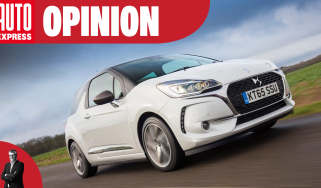

A rebooted DS3 hatch might be the French brand's only hope of UK survival
Editor Paul Barker thinks DS's plans for a reboot of its popular hatchback is a good idea
Where are the TV car shows? The BBC is no longer a friend of the motorist

Where are the TV car shows? The BBC is no longer a friend of the motorist
Mike Rutherford wonders why the BBC has stopped producing motoring content when there's clearly still a demand for it
Don’t forget to to try out the touchscreen when test driving a car

Don’t forget to to try out the touchscreen when test driving a car
Auto Express’ senior news reporter explains why you shouldn’t ignore trying out the infotainment screen when you’re evaluating a used car
Lotus designed a pick-up truck, and I can’t believe we can’t buy it in the UK!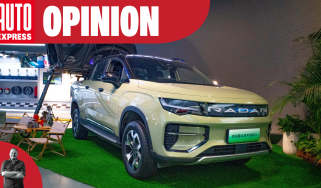

Lotus designed a pick-up truck, and I can’t believe we can’t buy it in the UK!
News reporter Ellis Hyde thinks China’s electrified pick-up brand Radar could do very well if it came here
Vauxhall sales are up because it’s not greedy, unlike some of its rivals 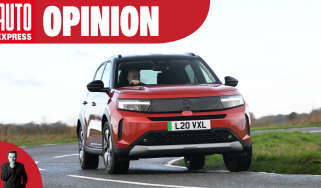

Vauxhall sales are up because it’s not greedy, unlike some of its rivals
Mike Rutherford takes a closer look at the UK new car sales figures from 2025
UK roads are no longer among the safest so the Road Safety Strategy was long overdue

UK roads are no longer among the safest so the Road Safety Strategy was long overdue
Editor Paul Barker questions whether the Road Safety Strategy will achieve a real drop in road casualties
The new petrol and diesel car ban is nothing more than state-sponsored bullying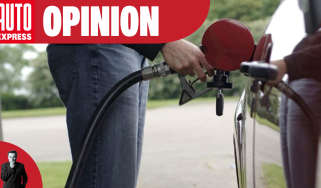

The new petrol and diesel car ban is nothing more than state-sponsored bullying
Mike Rutherford thinks the Government should allow motorists to buy new petrol and diesel cars well into the 2030s
Manners cost nothing, especially when buying a used car

Manners cost nothing, especially when buying a used car
Auto Express’s senior content editor explains why a little bit of consideration for the vendor is crucial when you’re buying a car privately
With new car prices soaring, Dacia's value focus should give it an edge in 2026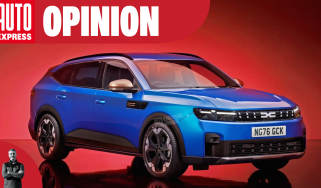

With new car prices soaring, Dacia's value focus should give it an edge in 2026
Deputy editor Richard Ingram looks ahead at some of the biggest new cars set to arrive in 2026
It’s clear that all buyers want are affordable and desirable cars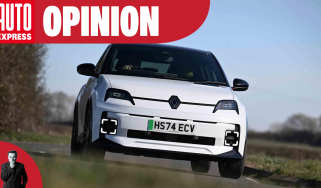

It’s clear that all buyers want are affordable and desirable cars
Manufacturers like BYD, Jaecoo and Renault are building affordable cars people actually want to buy, and it’s backed up by sales data
Car brands must go back to cyber security school

Car brands must go back to cyber security school
Tom Jervis thinks that if car manufacturers are going to continue harvesting our data, they need to get better at protecting it from criminals
Cheap Alibaba classic cars could be the answer for enthusiasts on a budget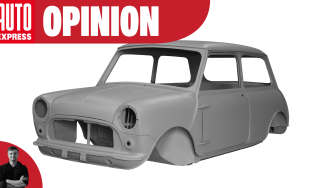

Cheap Alibaba classic cars could be the answer for enthusiasts on a budget
Alastair Crooks thinks replica classic cars based on reproduced bodyshells could be the next big thing, if safety barriers can be overcome
The UK government’s electric car strategy is right! It should hold firm in 2026 

The UK government’s electric car strategy is right! It should hold firm in 2026
Phil McNamara thinks the government’s handling of the electric car transition is broadly correct and it should resist calls for change
Want to have the most driving fun? Buy a manual sports car while you can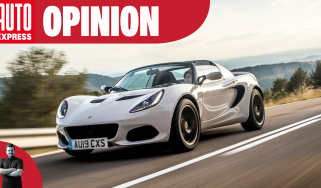

Want to have the most driving fun? Buy a manual sports car while you can
Auto Express’ content editor believes that, if you enjoy the sensation of driving, now is the time to buy a proper, manual sports car – before it’s to…
Alpine might have finally delivered a premium French car that Brits will take seriously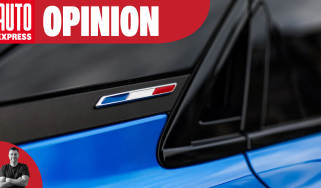

Alpine might have finally delivered a premium French car that Brits will take seriously
Steve Walker thinks sports car brand Alpine could well solve the long-standing French premium car problem… but by the back door
From the Chinese car surge to EV grants, 2025 has been game-changing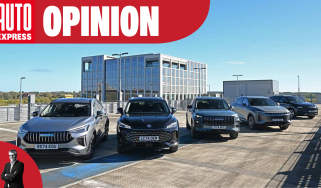

From the Chinese car surge to EV grants, 2025 has been game-changing
Editor Paul Barker takes a look back at the past twelve months
Tesla has lost its edge, but rival car brands could be made to fear it once again

Tesla has lost its edge, but rival car brands could be made to fear it once again
News reporter Ellis Hyde believes Tesla is no longer a force to be reckoned with, but could be again
Jaguar will prove the naysayers wrong by building a monolith of design and taste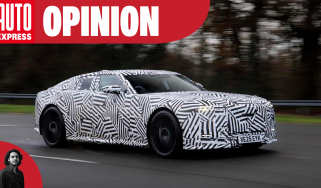

Jaguar will prove the naysayers wrong by building a monolith of design and taste
Jordan Katsianis thinks the criticism of Jaguar’s bold new approach is misplaced. If anything, it isn’t bold enough.
Let people choose the car that’s right for them, not meddling politicians 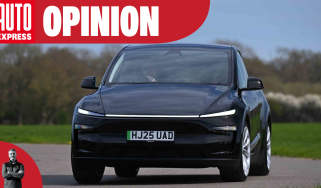

Let people choose the car that’s right for them, not meddling politicians
We need to reduce our carbon footprint, but I’ll never not advocate for people buying the car that’s right for them
2026 is the year people really start to care about Chinese cars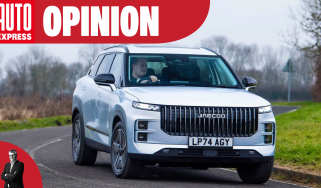

2026 is the year people really start to care about Chinese cars
The Chinese car invasion is in full swing and editor Paul Barker sees 2026 as a pivotal year where UK buyers will start to take notice
The Multi-Purpose Vehicle must return to save car buyers from their SUVs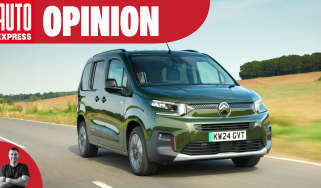

The Multi-Purpose Vehicle must return to save car buyers from their SUVs
Steve Walker thinks that MPVs would bring some much-needed choice back to a family car market fixated by SUVs
Make motorists pay-per-mile if you must, but at least use the cash to fix the roads!

Make motorists pay-per-mile if you must, but at least use the cash to fix the roads!
Dean Gibson wants more money from car taxation to go specifically on road maintenance